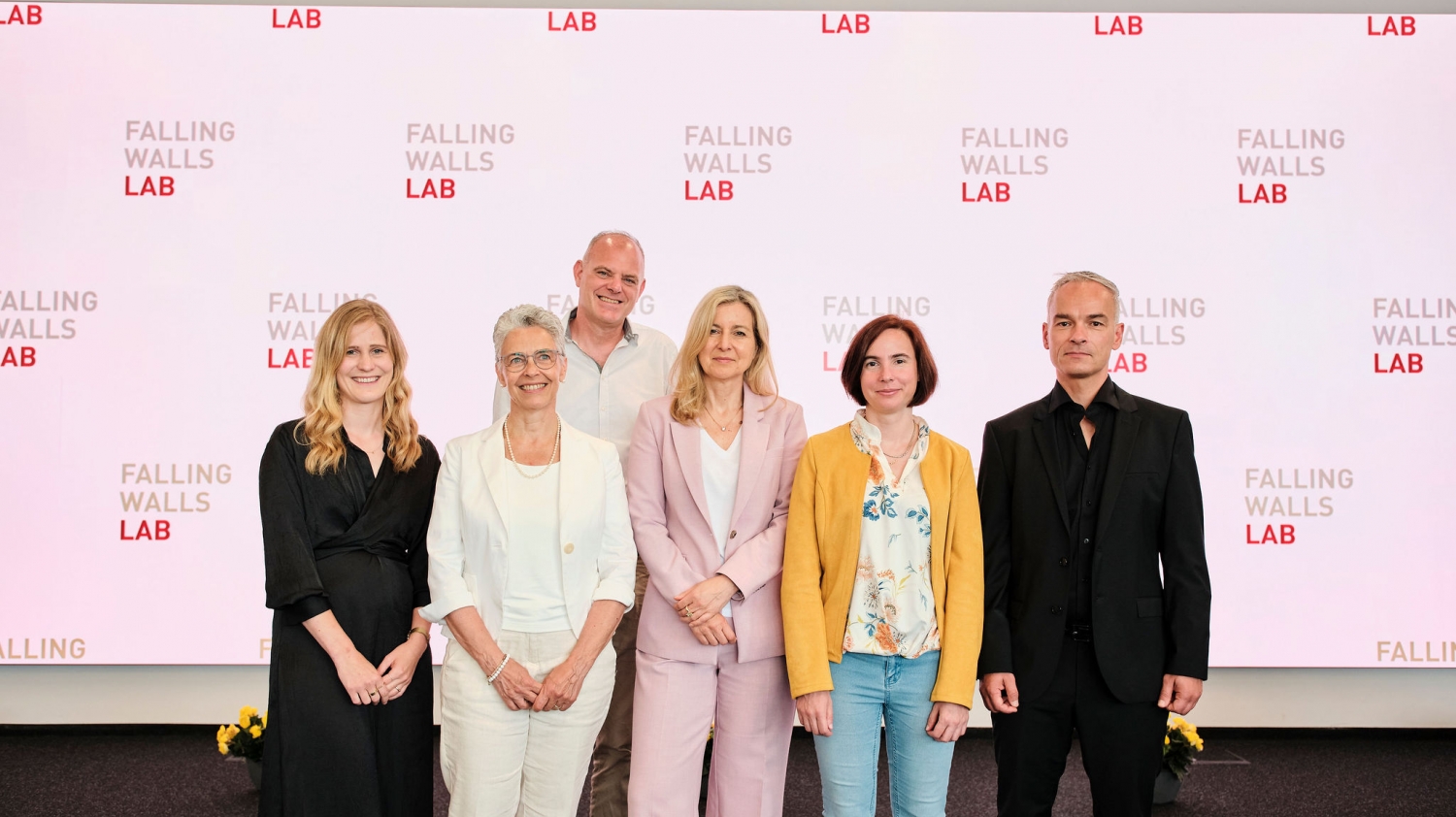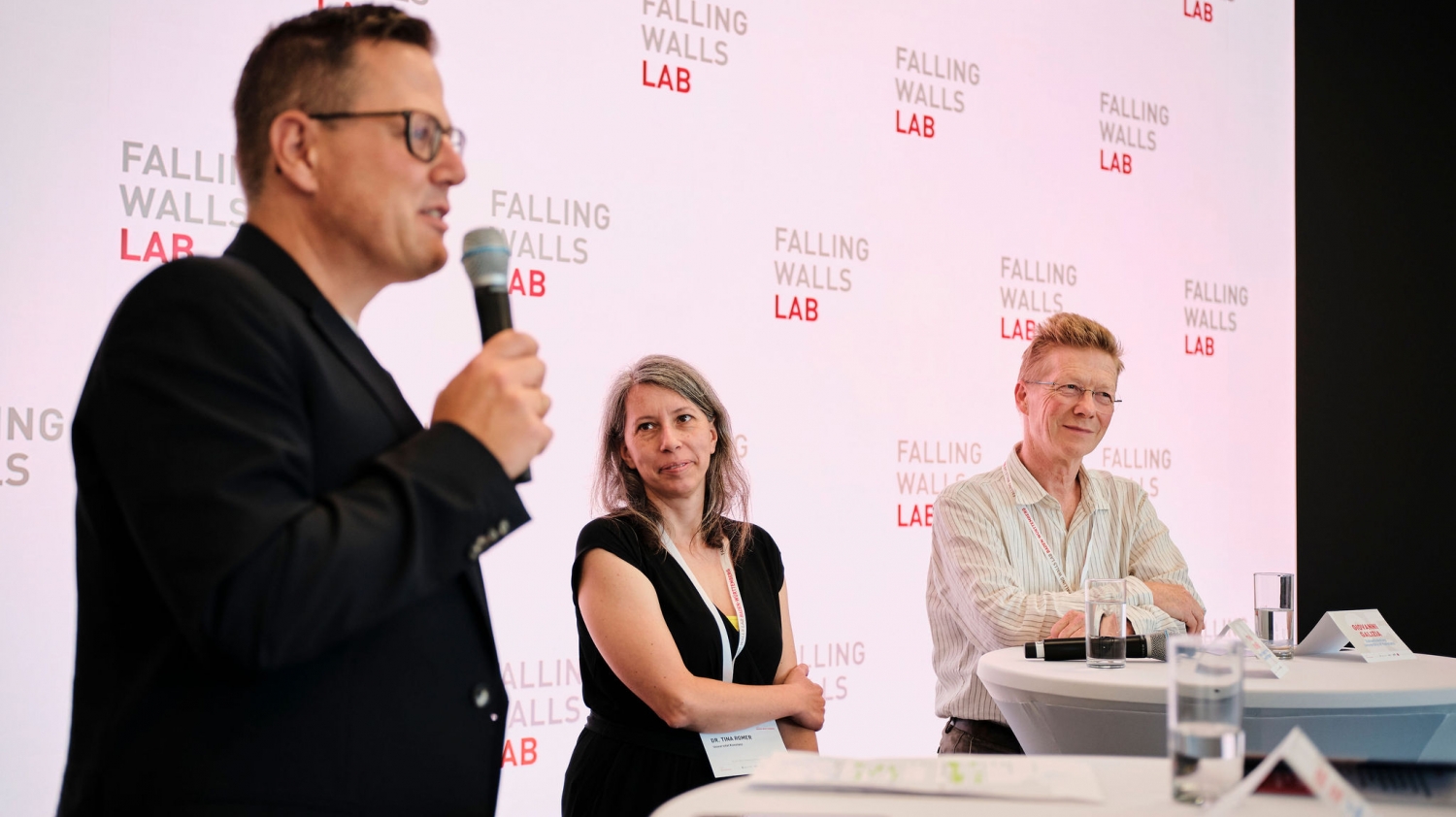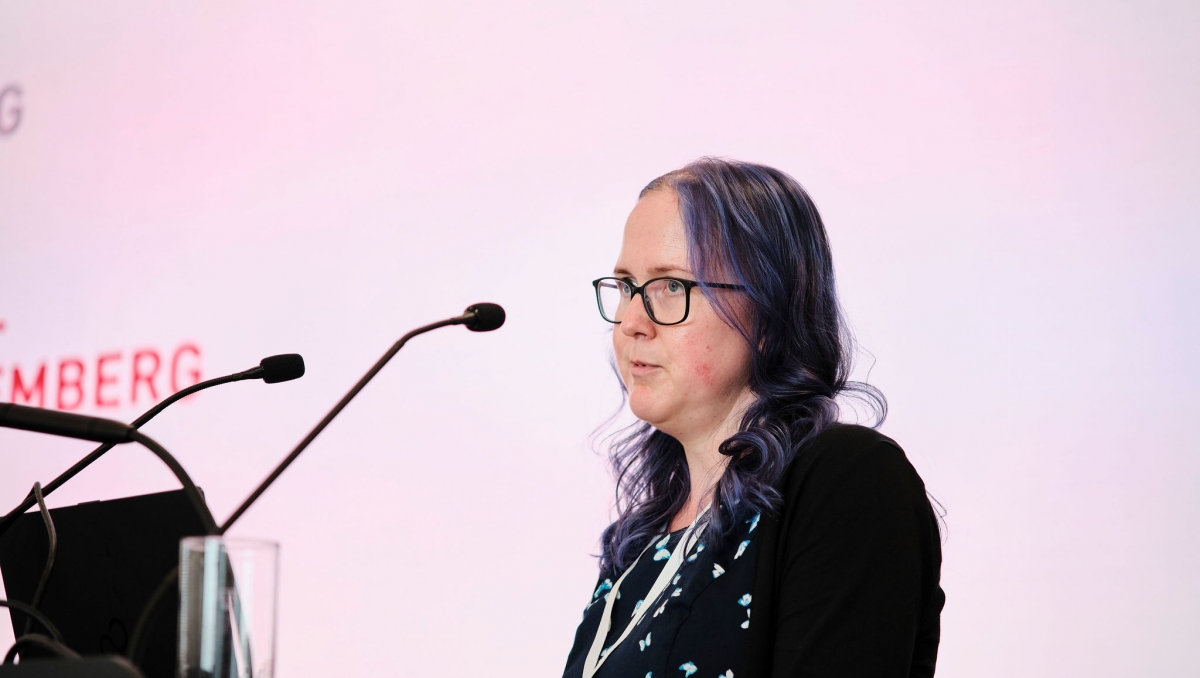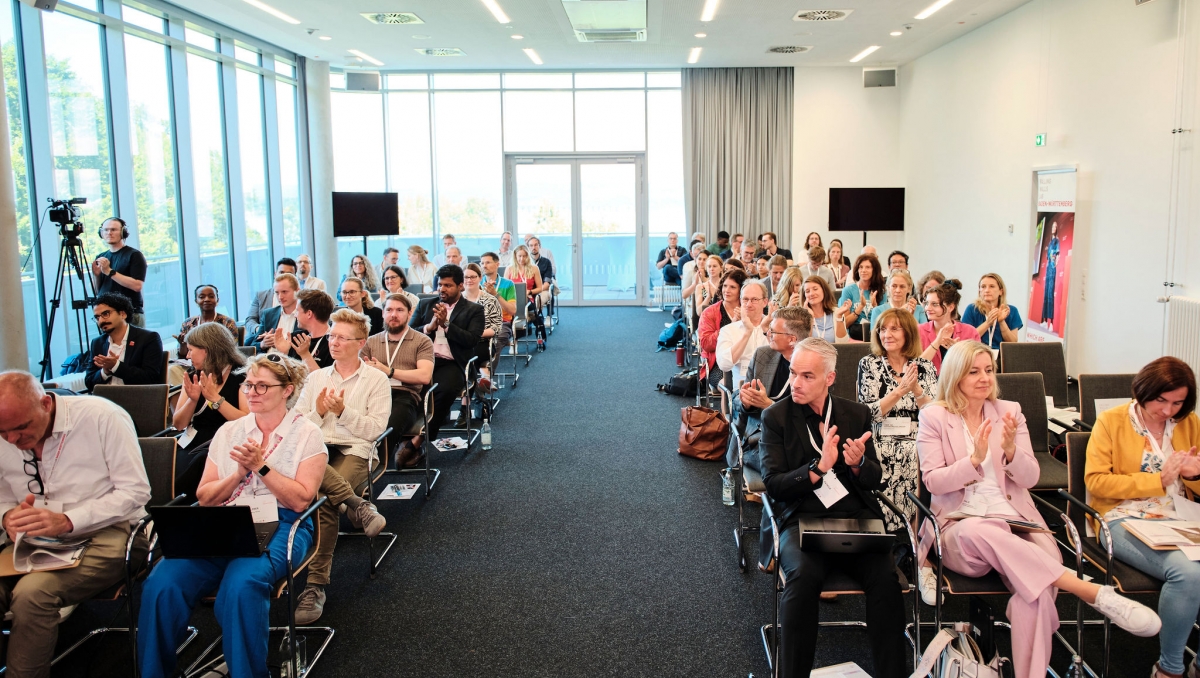Falling Walls Lab Baden-Württemberg 2025
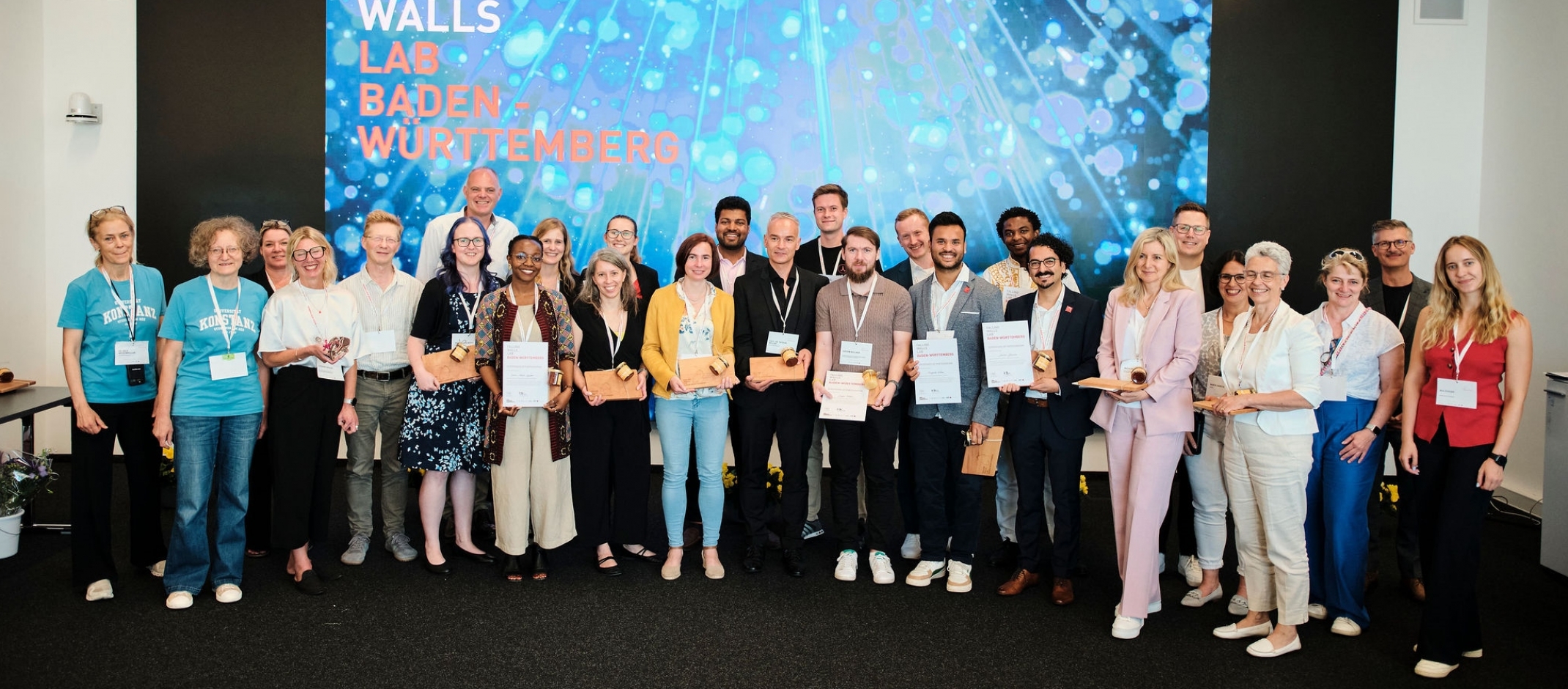
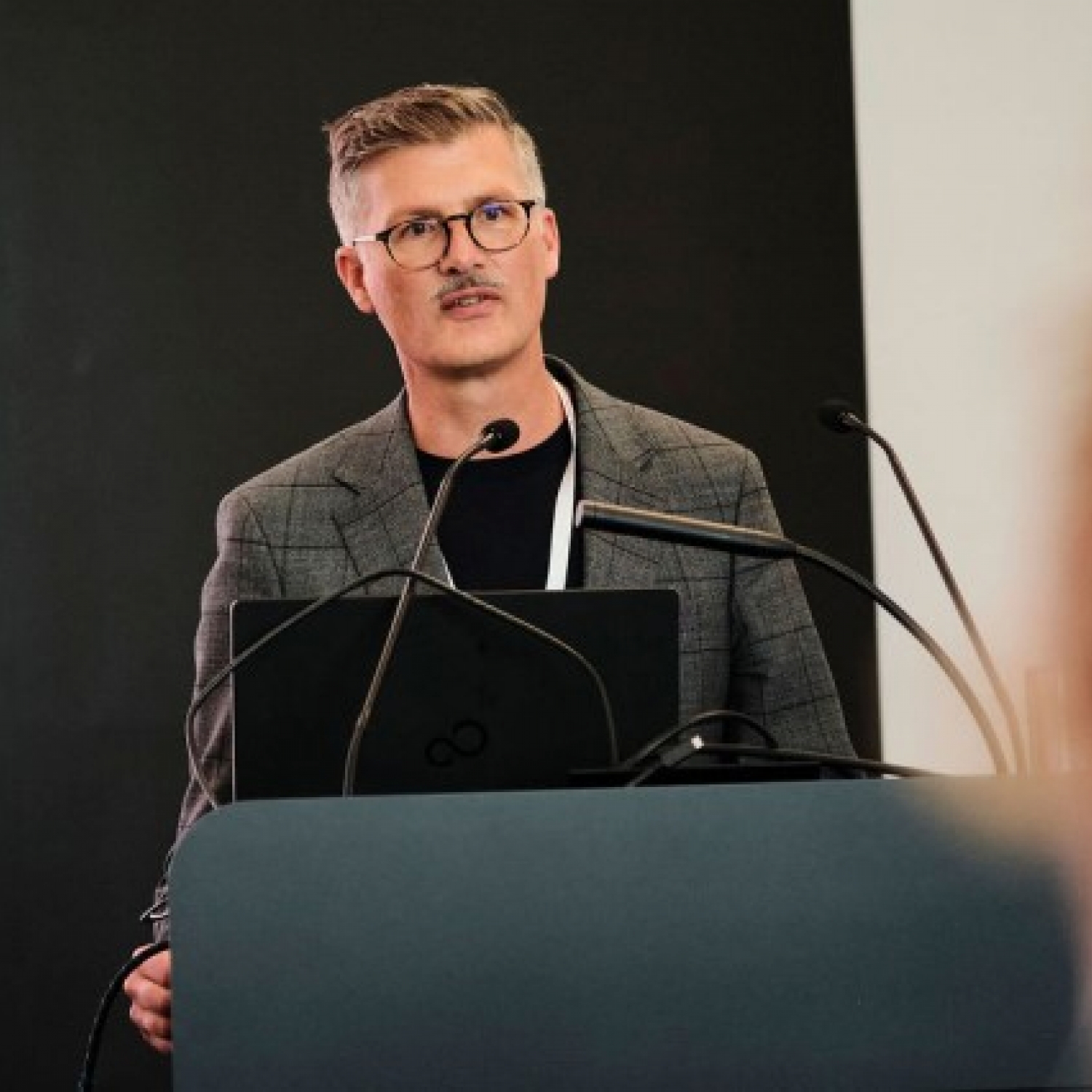
"The Falling Walls Lab demonstrates that science can motivate people and get them excited. The researchers who present their ideas and projects here are working on solutions for some of today's most pressing issues."
Dirk Leuffen, Vice Rector for Research, Innovation and Impact, at the start of the Falling Walls Lab hosted by the University of Konstanz
Andra-Lisa Hoyt, a doctoral researcher at the University of Konstanz, moderated the event. First, she explained that each of the competitors would get exactly three minutes to pitch their research project so that non-experts could understand it. A maximum of two presentation slides were allowed per pitch. Each pitch was followed by three minutes of questions from the jury to get a deeper impression of the projects. Three researchers from the University of Konstanz took up this challenge: Clovis Seumen, Oliva Saldanha and Pranav Kedia.
© University of Konstanz / Philipp UricherThe jury of experts evaluated the various research projects and selected the three winners of the Falling Walls Lab Baden-Württemberg. From left to right: Kirstin Bosbach, Elisa May, Nils Hoegsdal, Ina Schlie, Barbara Bruno and Patrick Müller
The projects reflected the wide diversity and innovativeness of the competition's participants. The researchers focused on questions like: How can diagnostic tests be brought to remote areas more quickly and cost-effectively? How can heart pump implantations be safer and more efficient? Or how can we collect solar energy in uncommon locations – like on the walls of a building or buses? While the audience picked its favourite project, the jury selected three winners – participants whose particularly creative and forward-looking ideas they found especially convincing.
Winners of the Falling Walls Lab Baden-Württemberg 2025
© University of Konstanz / Philipp UricherWinners of the Falling Walls Lab Baden-Württemberg 2025 (from left to right): Mayank Kedia (Audience Choice), Carina Kanitz (2nd place) and Florian Meißner (1st place).
A lively panel discussion took place as the audience waited eagerly for the jury's decision. Giovanni Galizia, director the University of Konstanz's Zukunftskolleg, Tina Romer, managing director of the Konstanz Research School Chemical Biology, and journalist Matthias Kiechle, managing director of SK ONE, discussed how research topics can be communicated in a forward-looking manner. The participants emphasized that both research and media are key achievements of democracy that need to be protected and linked in useful ways. At the same time, they spoke about the challenges resulting from the rise of large online platforms that have their own agenda to retain users, which results in filter bubbles that hinder open, democratic discourse. This is how Matthias Kiechle described the current tension in science journalism:
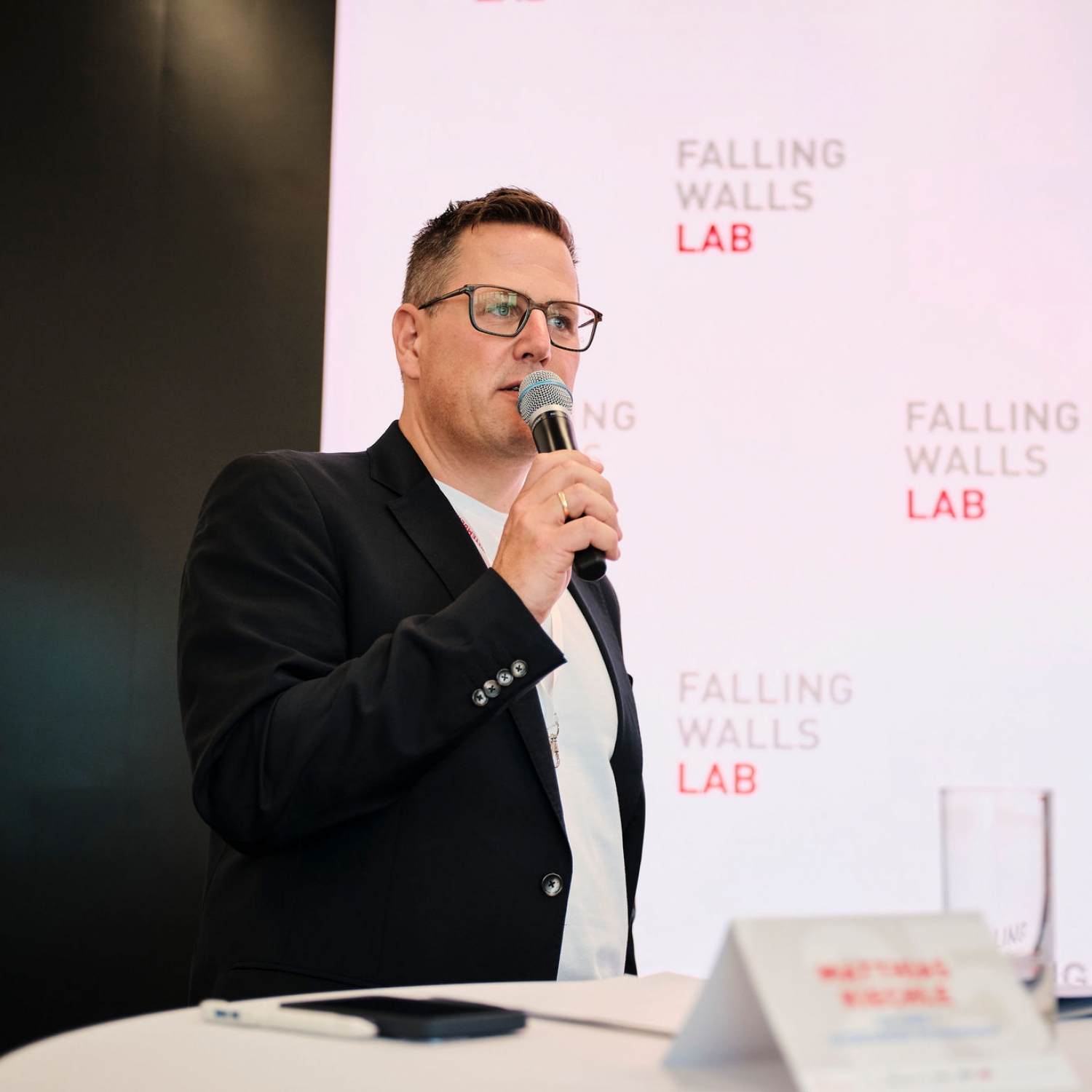
"As media professionals, we can't do without the platforms and their formats. More and more, content is personalized and explained using emotions – this makes it more accessible, but it also bears the risk of oversimplifying or distorting complex relationships."
Matthias Kiechle, managing director of SK ONE
Giovanni Galizia emphasized: "High quality media and sound research must continue to be firmly grounded in the evidence." Formats like the Falling Walls Lab show that research topics can be shared with the public in entertaining ways – which makes an important contribution to strengthening democracy.
© University of Konstanz / Philipp UricherPanel discussion on science communication in the digital age (from left to right): Matthias Kiechle, Tina Romer and Giovanni Galizia talked about the role of media, platforms and the dissemination of evidence-based information.
The event closed in a relaxed atmosphere with music and refreshments. Yet the excitement remains to see whether Florian Meißner, the winner in Konstanz, will also will in the national final of the Falling Walls competition in Berlin.
Impressions:

